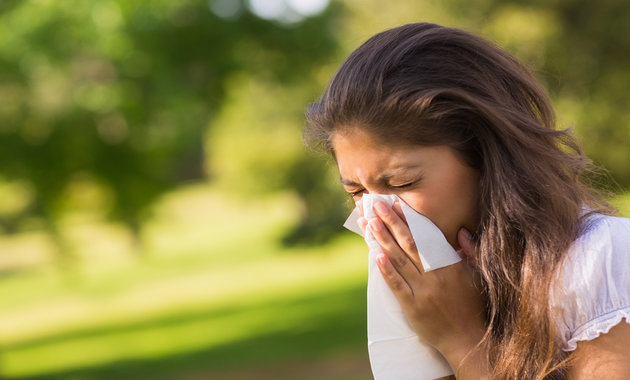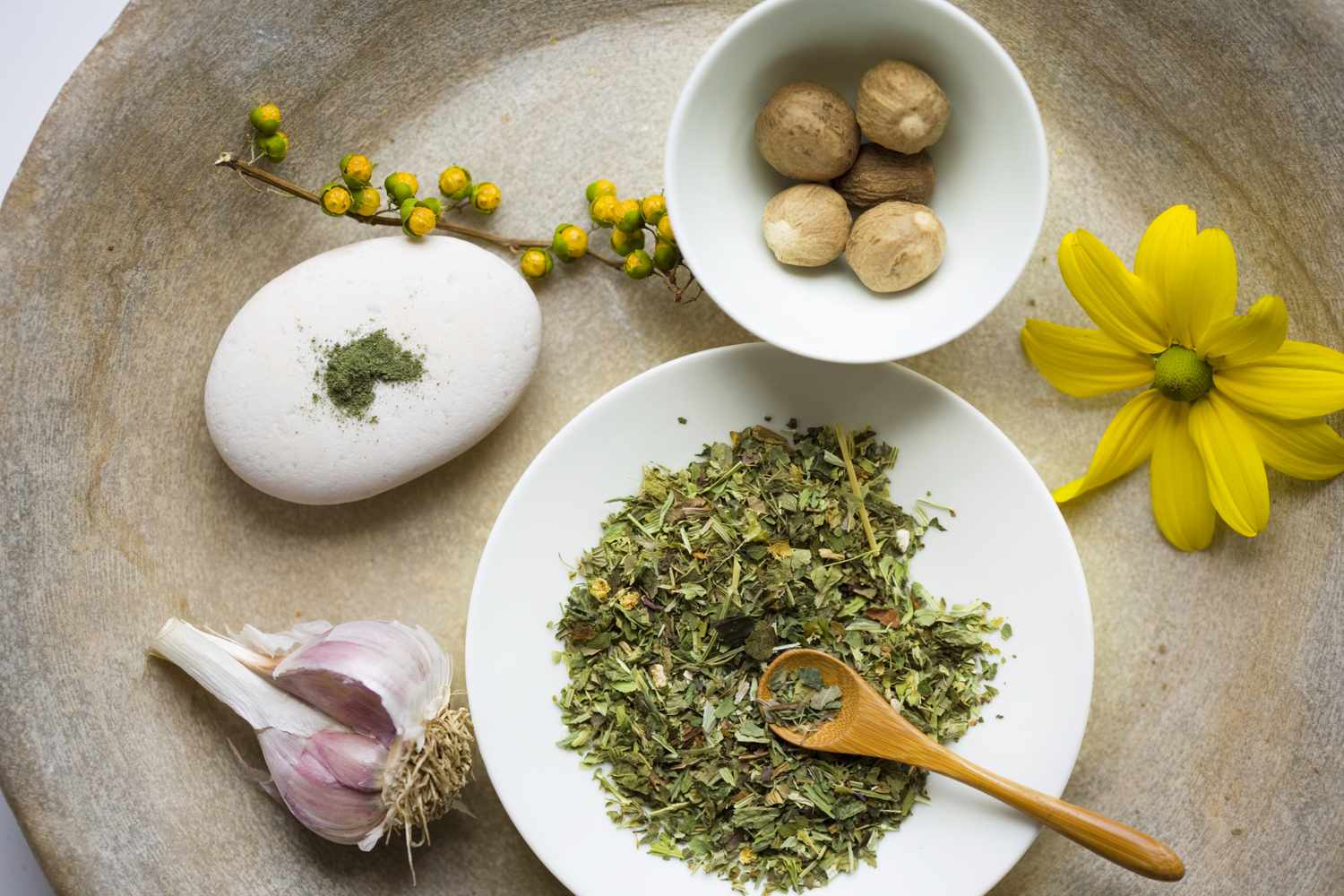Spring is a time of renewal and beauty, but for many, it also brings the discomfort of seasonal allergies. Pollen from blooming trees, flowers, and grasses triggers allergic reactions that can range from mild sneezing to severe congestion, itching, and watery eyes. While over-the-counter medications are readily available, many individuals seek natural alternatives for relief. Herbs have been used for centuries to address various ailments, including seasonal allergies. In this article, we will explore five of the best herbs for spring allergy relief.
1. Butterbur (Petasites hybridus)
Butterbur is one of the most studied herbs for allergy relief, and its efficacy is supported by several clinical trials. It acts as a natural antihistamine, helping to reduce the body’s histamine response, which is responsible for many allergy symptoms like sneezing, congestion, and itchy eyes. Unlike traditional antihistamines that can cause drowsiness, butterbur offers relief without this common side effect.
How It Works:
Butterbur contains compounds known as petasins, which help reduce inflammation and block histamine production. Histamines are chemicals released by the body during an allergic reaction. By inhibiting histamine release, butterbur can help manage allergy symptoms more effectively.
Usage:
Butterbur is often taken as a supplement in the form of capsules or tablets. It is essential to choose a product that is labeled “PA-free” (pyrrolizidine alkaloids-free) to avoid potential liver toxicity. Dosages typically range from 50 to 150 mg per day, but it’s always a good idea to consult with a healthcare provider before starting any herbal supplement.
Research:
Several studies have demonstrated butterbur’s ability to alleviate allergy symptoms. In a 2005 study published in the British Medical Journal, researchers found that butterbur was just as effective as traditional antihistamines in treating hay fever, with fewer side effects.
Caution:
While butterbur is generally safe, it’s important to use it in moderation. Long-term use should be avoided unless under medical supervision due to potential liver concerns.
2. Stinging Nettle (Urtica dioica)
Stinging nettle has long been used as a natural remedy for a variety of ailments, including seasonal allergies. This herb is known for its ability to reduce inflammation and block histamines, similar to butterbur. Nettles can help relieve common allergy symptoms like runny nose, itchy eyes, and congestion.
How It Works:
Stinging nettle contains biologically active compounds that can help reduce inflammation. It acts as a natural antihistamine by blocking the histamine receptors in the body, which can help alleviate allergy symptoms. Additionally, nettle is a natural anti-inflammatory, which further reduces the intensity of allergic reactions.
Usage:
Nettle is available in various forms, including capsules, teas, and tinctures. Drinking nettle tea is a popular way to relieve allergy symptoms, and capsules provide a more concentrated form of relief. Dosage varies depending on the form, but it’s generally safe to consume stinging nettle daily during allergy season. Many people take around 300 mg of freeze-dried nettle capsules per day.
Research:
A study published in Phytotherapy Research showed that 58% of participants found nettle to be effective in relieving allergy symptoms after just one week of use. The anti-inflammatory properties of nettle make it an ideal choice for those looking for a natural way to manage their symptoms.
Caution:
Some people may experience mild stomach discomfort when taking stinging nettle. It’s always advisable to start with a lower dose and monitor your body’s response.

3. Quercetin
Although quercetin is not technically an herb, it’s a powerful plant flavonoid found in many herbs and foods. Quercetin is known for its antioxidant, anti-inflammatory, and anti-allergy properties. It works by stabilizing mast cells, which are responsible for releasing histamine during allergic reactions. This reduces the body’s histamine response, thereby alleviating allergy symptoms.
How It Works:
Quercetin prevents the release of histamines and inflammatory markers, which are the primary culprits behind the sneezing, itching, and congestion associated with spring allergies. It also has antioxidant properties that protect cells from damage caused by free radicals, making it a holistic approach to allergy relief.
Usage:
Quercetin can be found in various herbal supplements, fruits, and vegetables, including onions, apples, and grapes. For those suffering from allergies, quercetin supplements are available in capsules or powder form, with dosages ranging from 500 to 1,000 mg daily. Quercetin works best when taken as a preventive measure several weeks before allergy season.
Research:
Research published in the Journal of Allergy and Clinical Immunology found that quercetin is effective in reducing allergy symptoms by inhibiting histamine release. It’s particularly helpful for individuals who experience both seasonal allergies and asthma.
Caution:
Quercetin is generally well-tolerated, but large doses may cause headaches or upset stomach. It is recommended to take quercetin supplements with food to minimize any digestive discomfort.
4. Eyebright (Euphrasia officinalis)
Eyebright is a small flowering plant traditionally used to treat eye-related conditions, including the itching and watering that often accompany spring allergies. As its name suggests, this herb is beneficial for eye health and is commonly used to relieve conjunctivitis, eye irritation, and other allergy-related eye symptoms.
How It Works:
Eyebright contains compounds like tannins and aucubin that have anti-inflammatory and astringent properties. These compounds help soothe irritated mucous membranes in the eyes and reduce the excessive production of fluids that cause watery eyes during allergy season.
Usage:
Eyebright is available as an herbal tea, tincture, or capsule. It can also be used topically as an eye wash, though care should be taken when applying any substance near the eyes. For internal use, eyebright tea or supplements are commonly taken to relieve allergy symptoms affecting the eyes.
Research:
A study published in Ophthalmology demonstrated that eyebright extract significantly reduced symptoms of allergic conjunctivitis. Although more research is needed to establish its full efficacy, many herbalists recommend eyebright for relieving allergy-related eye issues.
Caution:
As with any herbal remedy, it is important to use eyebright with caution. It’s advisable to consult with a healthcare provider before using eyebright, especially if you have sensitive eyes or other underlying conditions.
5. Butterfly Bush (Buddleja davidii)
The butterfly bush, often recognized for attracting butterflies to the garden, is also a potent remedy for allergies. The plant’s flowers contain bioactive compounds that exhibit anti-inflammatory and antihistamine properties, making it a great herb for treating spring allergies.
How It Works:
Butterfly bush acts on the immune system by modulating the response to allergens, reducing inflammation, and inhibiting histamine production. Its antioxidant properties also help reduce oxidative stress, which can worsen allergic reactions.
Usage:
Butterfly bush is typically used in the form of herbal tinctures or teas. While not as commonly available as some other herbs, it can be found in specialized herbal stores or online. The appropriate dosage depends on the form and concentration, so it’s best to follow the instructions on the product label.
Research:
Some preliminary studies have shown that butterfly bush extracts can reduce allergic reactions and inflammation. Though more research is needed to confirm these findings, the plant has a long history of use in traditional medicine.
Caution:
Butterfly bush is generally safe, but as with all herbs, it’s important to use it in moderation and consult with a healthcare professional before starting a new herbal treatment.
Conclusion
Herbal remedies offer a natural and effective way to combat the symptoms of spring allergies without the side effects often associated with conventional medications. Butterbur, stinging nettle, quercetin, eyebright, and butterfly bush are five of the best herbs for alleviating allergy symptoms such as sneezing, itchy eyes, and congestion. While these herbs can provide significant relief, it’s always important to consult a healthcare provider, especially if you’re taking other medications or have underlying health conditions.
By incorporating these herbs into your daily routine, you can enjoy the beauty of spring without being bogged down by allergies. Whether in the form of teas, tinctures, or supplements, these natural solutions can help you breathe easier and feel better throughout allergy season.


